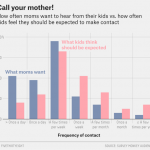If you’re only going to read one link I put in the Quick Takes, make it this one on the way an over-reliance on mice may be screwing up our understanding of human disease.
Mark Mattson knows a lot about mice and rats. He’s fed them; he’s bred them; he’s cut their heads open with a scalpel… Still, he never quite noticed how fat they were—how bloated and sedentary and sickly—until a Tuesday afternoon in February 2007. That’s the day it occurred to him, while giving a lecture at Emory University in Atlanta, that his animals were nothing less (and nothing more) than lazy little butterballs. His animals and everyone else’s, too.
Mattson was lecturing on a research program that he’d been conducting since 1995, on whether a strict diet can help ward off brain damage and disease… How would these findings apply to humans, asked someone in the audience. Should people skip meals, too?
But Mattson wasn’t so quick to prescribe his stern feeding schedule to the crowd in Atlanta. He had faith in his research on diet and the brain but was beginning to realize that it suffered from a major complication. It might well be the case that a mouse can be starved into good health—that a deprived and skinny brain is more robust than one that’s well-fed. But there was another way to look at the data. Maybe it’s not that limiting a mouse’s food intake makes it healthy, he thought; it could be that not limiting a mouse’s food makes it sick. Mattson’s control animals—the rodents that were supposed to yield a normal response to stroke and Parkinson’s—might have been overweight, and that would mean his baseline data were skewed.
And if you’re only going to read one caveat to a Quick Take I post, make it this one: the over-reliance on mice is a serious problem that may have tainted a lot of research, but it’s not a reason to throw over science. It’s the scientific method and the rationalist approach that lets us spot these errors in the first place. So unless you can articulate your methodological objection and explain how to test it, you’re probably best off operating according to the current scientific consensus.
And, now, if I can possibly prevail on you to read another long feature article, you should really check out this piece from the Awl on Sherlock Holmes fanatics. There are too many awesome quotes to spotlight, but I’ll limit myself to one:
In 1943, Edgar Smith, then head of BSI, mandated that the annual dinner’s first “Conanical” toast be dedicated to “the woman,” and a living exemplar of Irene Adler honored. The first recipient of the “the woman” toast was Gypsy Rose Lee. Even as the guest of honor, Lee was only allowed to attend the pre-dinner cocktail party at which the toast was administered, before being retired for the evening.
Oh, and if you’re already obsessed with the BBC’s new modern-day Sherlock series, you’ll be as thrilled as I am to know that season 2 debuts on PBS on May 6th. If you haven’t been watching, the entire first season is available on Netflix instant streaming and is fantastic.
http://www.youtube.com/watch?v=m4foH4HCzKAThe second season was delayed for what feels like forever because of the new Hobbit movie. Dr. Watson is playing Bilbo and Sherlock is the voice of Smaug, and, as bad as I feel as a Tolkein fan, I was totally begrudging Middle Earth their use. But now that the date of their return is set, I plan to welcome the characters back with an all-tweed party.
io9 came up with a list of new scifi plot devices they’d like to see deployed, and my favorite was number 9:
Ghosts don’t always haunt places. Sometimes they haunt ideas. That’s why there are spirits flickering to (un)life among the protesters at Occupy Wall Street encampments.
Except I’m pretty sure I’ve seen it used before, but now I can’t think where.
National Novel Writing Month is in full swing, and, though I flaked out on my plans, I’ve been following the @FakeNNWMTips twitter page with great amusement. The most germane:
The bible is in the public domain. Simply do a search and replace for “Hittites” with “Zombies” and you are 70% done. #nanowrimo
Finally, if you liked yesterday’s post about Sweeney Todd and morality (and the accompanying paper), enjoy this clip of “A Little Priest” from the Broadway production:
http://www.youtube.com/watch?v=J7LhNCK2axYFor more Quick Takes, visit Conversion Diary!












